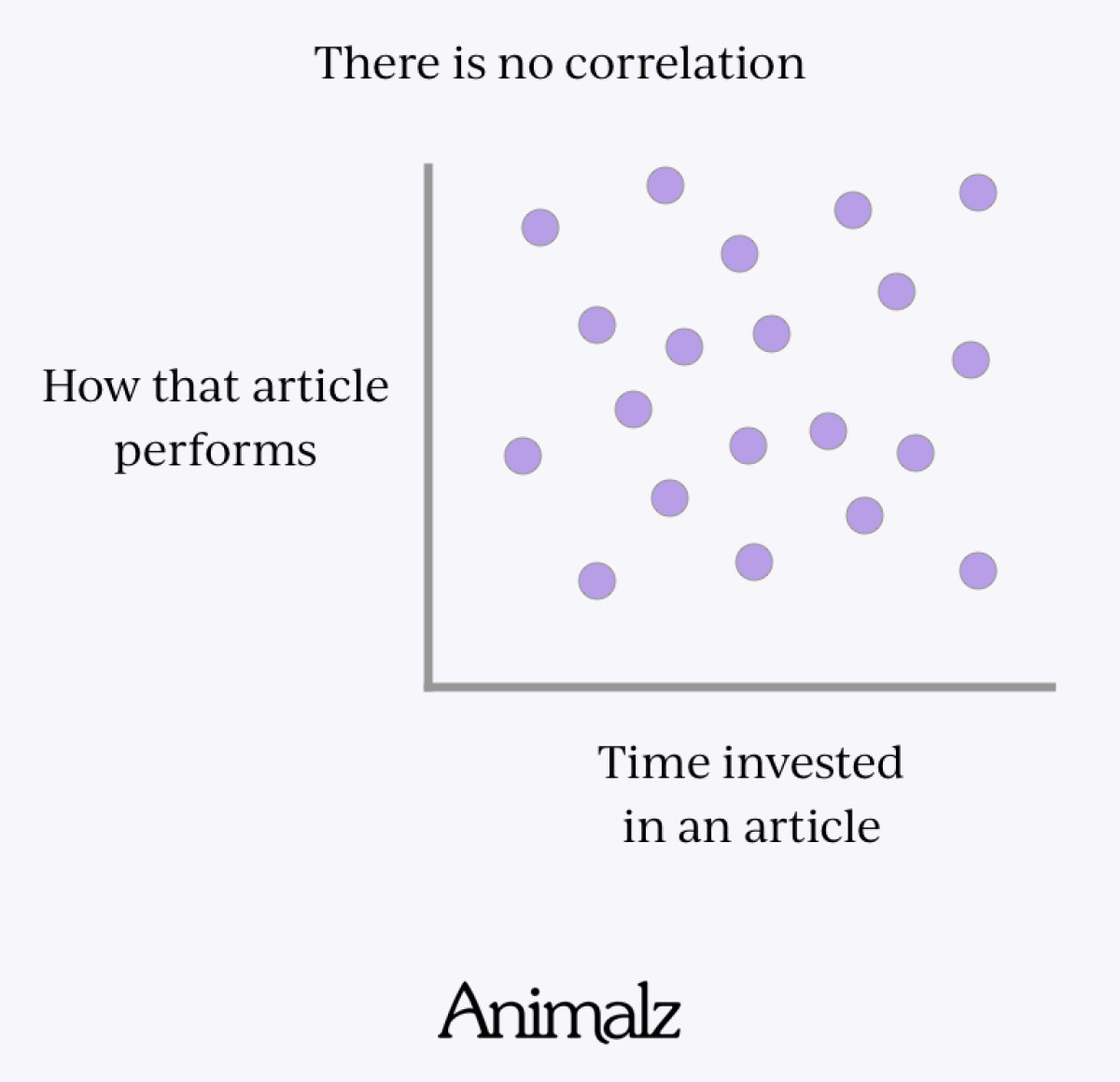There is no correlation between the time invested in content and the performance of that content. This is either the best thing about content marketing or the most frustrating. It just depends on how you look at it.

This is an imperfect but helpful idea. Sometimes, content requires a substantial time investment. Benchmark reports, ebooks, data analysis, etc., can’t be useful with significant research and editing. In this case, time invested correlates with quality but not necessarily performance.
Other times, no amount of additional time can turn an uninteresting idea into a compelling one. If the idea isn’t strong or isn’t well framed, that time is better spent on the next piece.
The best content is not driven by the manual labor of collecting statistics (although that might be involved) or the exertion of writing a lot (although you might do that too). The best content is simply framed in a way that makes you really want to learn the core insight of the piece.
Here’s an example from HR software maker CharlieHR: We tried unlimited holiday for three years. Here’s everything that went wrong.Read the title. Now imagine if the post’s title were “What We Learned by Offering Unlimited Time Off.” One title evokes the boredom of a content marketer tasked with writing an article about a startup’s abortive policy move. The other, a desire familiar to just about every startup founder, employee, and people-ops team member—liberalizing your vacation policy—and all the painful realizations that CharlieHR made as they experimented with actually bringing unlimited vacation time into being.One title is generic; one title is clearly and deeply personal, with real candor. One title makes you want to read more; one title makes you want to do anything but.Being personable and humble and transparent is a great way to frame content (when possible), but it’s far from the only way. The real key is to think about your post as a reader would—why would anyone who doesn’t already know you care to read what you have to say? Do you have unequaled experience that makes your perspective useful? Have you done more research on this topic than anyone else? Make all of that clear in the title.Achieving a high-quality framing for your article doesn’t mean you can suddenly write posts in 10 minutes, but it does mean that you won’t need to struggle to make your post interesting or different anymore. Content marketers tend to compensate for uninteresting angles by overwhelming their audience with data and information that readers just don’t need or care about. CharlieHR needed to invest time in making the piece interesting and informative, but the piece succeeded based on the angle, not the word count.
So, to summarize: Content can perform well regardless of how long it took to create. The inverse is also true: Content can perform poorly even if you invest lots of time in it. What should you do with that information? Here are a few takeaways:
Some great posts can be written really quickly because the idea or the format is strong.
Invest time up front in better ideas and more interesting angles. This, more than the actual content, will determine the performance of an article.
Don’t invest too much time writing and editing content about uninteresting ideas.
When a piece requires lots of time, research and data analysis, don’t shy away from it.
Try to find balance in your work. Some content deserves time and many iterations to achieve its potential. Other content can be streamlined to avoid wasted time. Don’t rely on one approach or the other; just make sure you understand the mechanisms that make each type successful.
